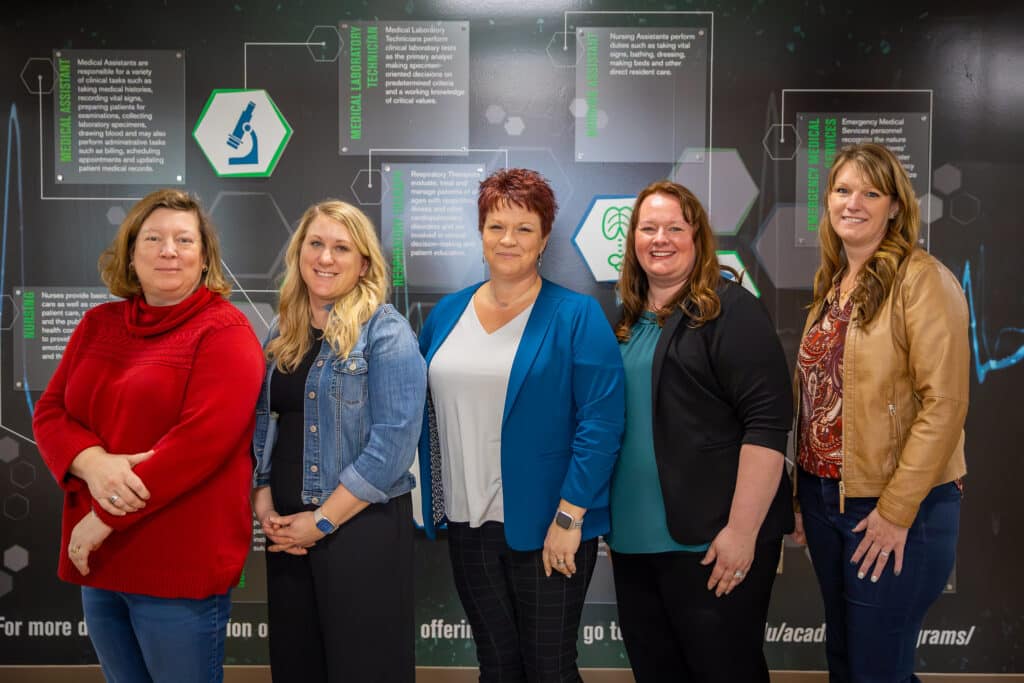
At Moraine Park, the commitment to providing quality education is a top priority—and no one knows this better than the students who have learned within the walls of MPTC campuses. The College has a robust alumni group of thousands of individuals who work right here in the community—fueling the local economy, and this includes Moraine Park.
Many employees at MPTC started their education within the very walls they are now fulfilling their careers, and at the College’s Beaver Dam Campus, this includes all five nursing educators. Kim Lisko, Sarah Bergemann, Amy Hensel, Maggie Laubenstein, and Cathy Bosch make up the entire nursing education team at Moraine Park’s Beaver Dam Campus—each bringing something different to the classroom. Their one similarity, however, is they all carry their MPTC student and alumni experiences forward as they educate the next generation of nurses.
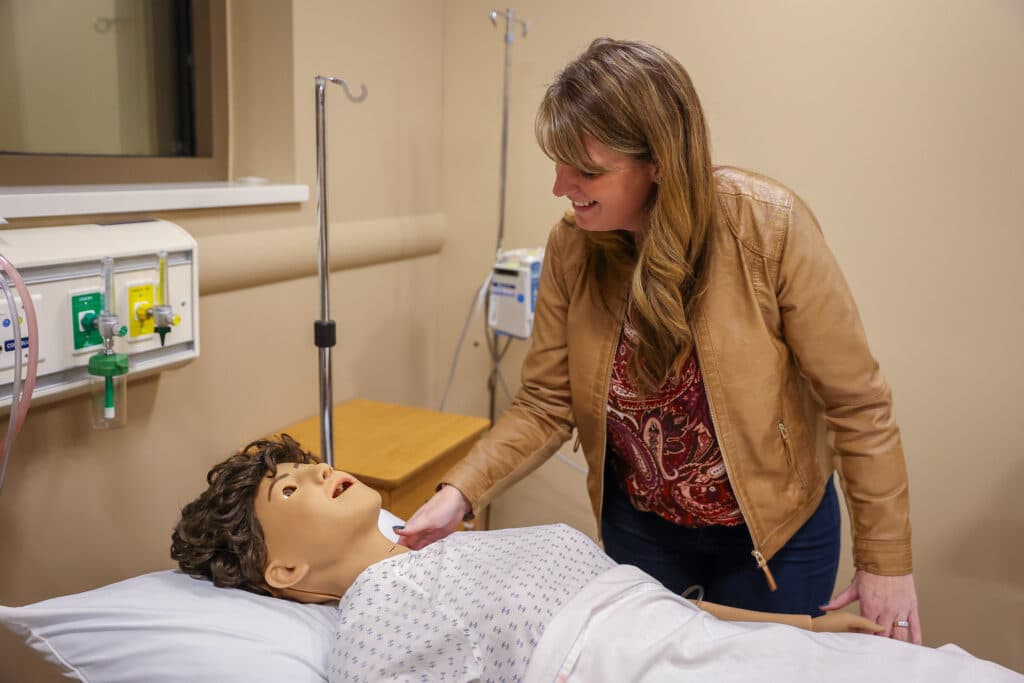
“The start of my nursing career was extremely influential,” Bergemann, said. “I was a nontraditional student and a little reluctant at first but was embraced and supported. It was a breath of fresh air having the varying ages of the students because we ended up learning from each other and our different experiences.”
Each Moraine Park campus has a set of nursing educators, and it is no secret that the College hires top-notch educators.
“What’s unique about the five of us is that we know the student perspective,” Laubenstein said. “We have sat in these seats, and I tell students all the time that I know how hard they are working and how hard this program is because I have done it. My Moraine Park education set the foundation for my career and is what made me fall in love with the profession.”
It was clear to them that their educational journey would continue beyond MPTC.
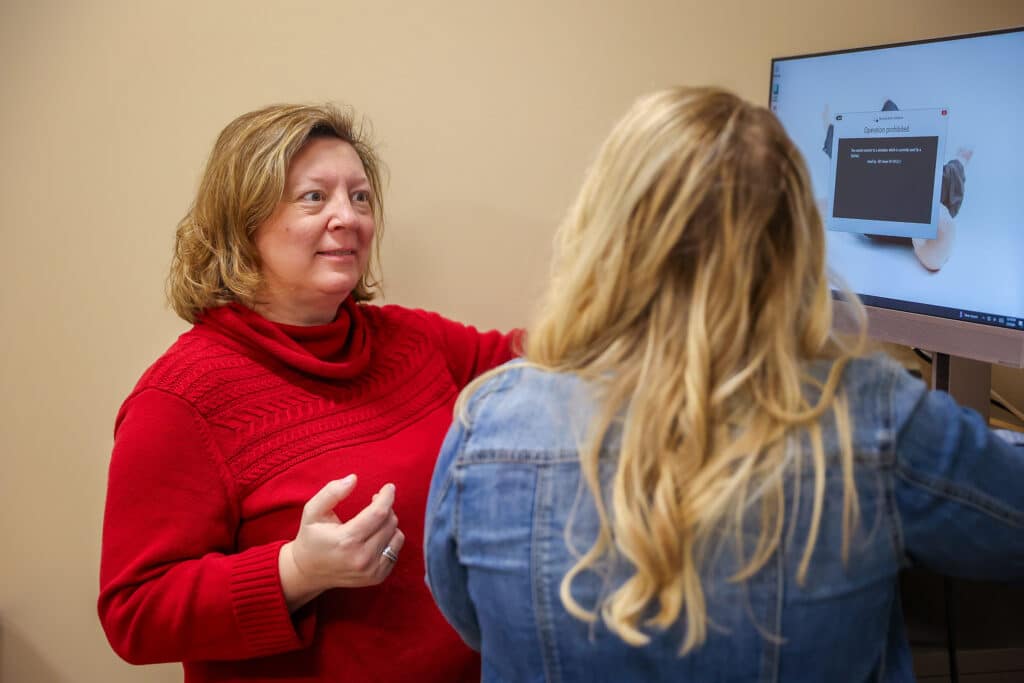
“Being a Moraine Park alumna helps to make me more relatable with my students,” Bosch said. “I like to tell the story of how I started at Moraine Park and worked to build my career from there.”
While each pathway beyond the College was different, they remain firm that achieving an education from Moraine Park is equivalent to any other nursing school in the state.
“When nursing students graduate, they must pass the national nursing exam, NCLEX,” Lisko said. “All RNs take the same test, regardless of their degree credentials. Our nursing students, who will earn an Associate of Applied Sciences degree, will take the test alongside those earning a Bachelor of Science degree.”
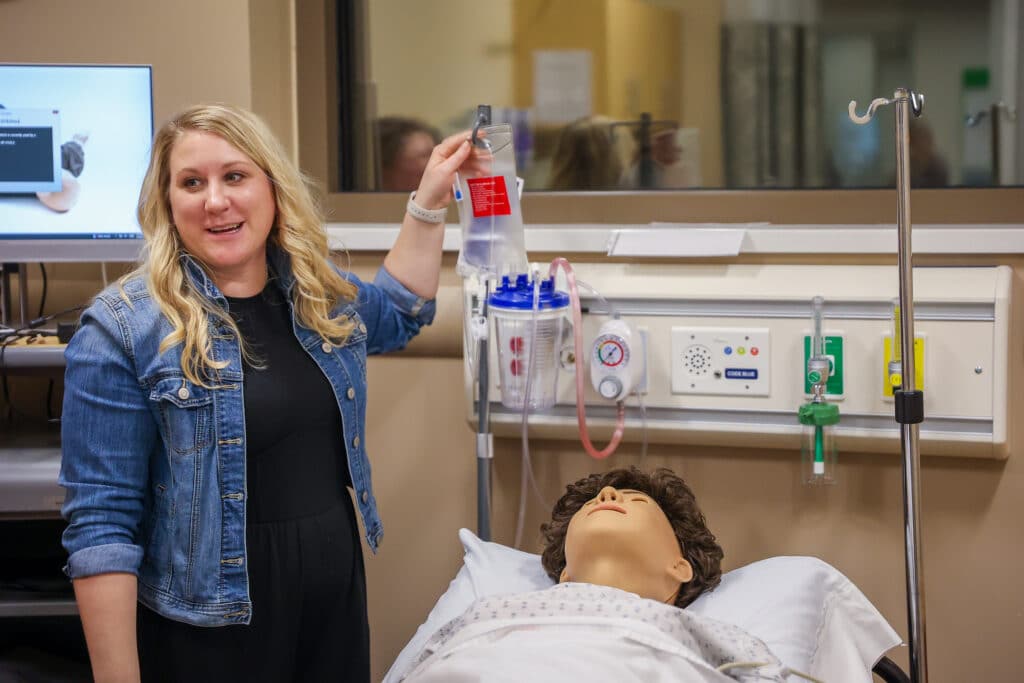
The National Council Licensure Examination (NCLEX) is a test administered by the State of Wisconsin that determines if a nursing candidate can provide safe and effective patient care. Upon passing, they immediately earn their Registered Nursing license credential. For educational institutions, achieving an above average NCLEX pass rate is a direct reflection of the level of skilled training and overall career preparation, and Moraine Park nursing graduates have earned that achievement year after year.
“I’m most proud of the quality of nurses we provide to our communities,” Bosch said. “The test or the credential does not come any easier just because they chose a two-year degree pathway. In fact, it is quite the opposite, and their ability to become qualified nurses in two years reflects a significant amount of dedication and hard work.”
It is clear the entire group holds immense pride for both Moraine Park and their nursing career, and they are a tight-knit unit, each working to better the program, each other and each student.
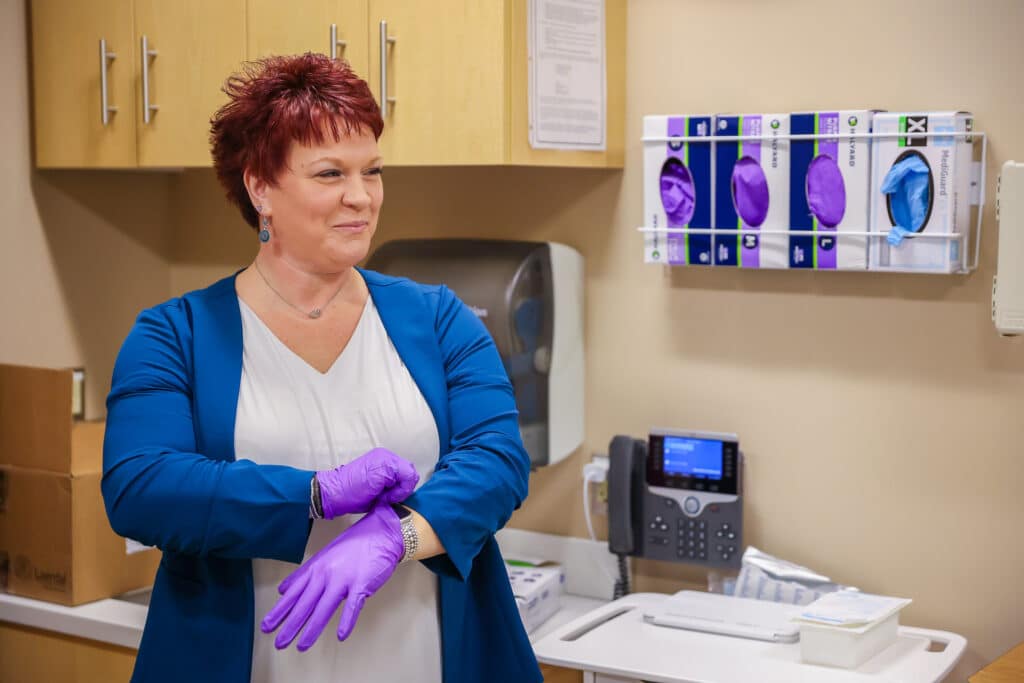
“What’s great about Moraine Park specifically is that we are community-focused,” Hensel said. “We are very connected to our local health care systems—some still work as RNs in our community. Our students are in clinical and at the bedside in our local facilities in the first semester. These relationships help our students to see the connectivity between our communities, the College and our local health care systems.”
Each year, MPTC welcomes more than 100 new nurses to the local community and that commitment is exactly what brought the group of five back to Moraine Park as educators—to give back what was once given to them.
“Our commitment to our students and community is two-fold,” Laubenstein said. “We take care of our students like we would our patients—teaching them to become great nurses, and in turn, they will take care of those within our communities—and someday they will take care of us.”
Learn more about being a faculty member:
